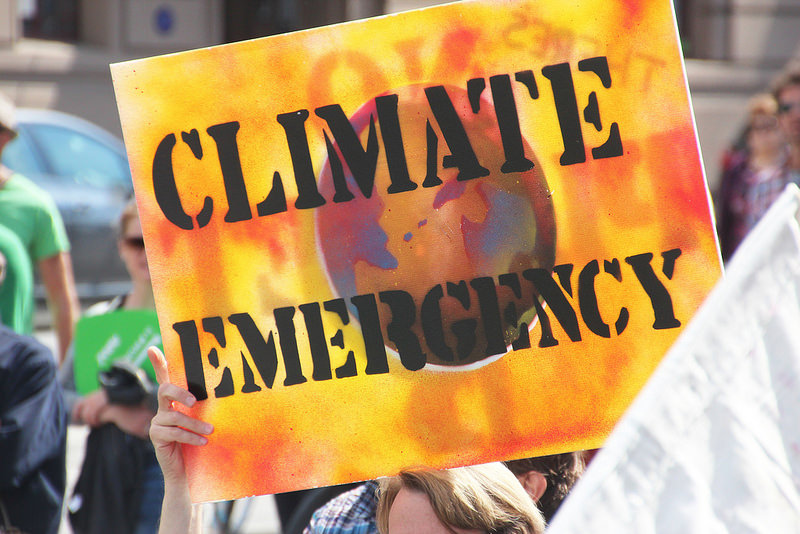Meeting a target of keeping global temperature from rising above 2 degrees Celsius is still possible, according to 30 leading climate and energy experts.
The authors, who include former U.K. government scientific adviser Sir Bob Watson, conclude that staying under 2 C needs “immediate, urgent action” at the highest levels of governments. The Tackling the Challenge of Climate Change report was presented at Ban Ki-moon’s UN climate summit in New York.
Watson rejects any suggestion that 2 C is an inappropriate target saying it “plays into the hands of climate deniers” and would be a step backward from the urgent action that’s needed.
Waiting until 2025 or 2030 to bend the CO2 emissions curve will be too late to meet the 2 C target. That would hit most of Africa, many small island states and the world’s poorest very hard.
The report is a “short, punchy document focused on near-term solutions,” said Watson while acknowledging there is little new in it. The steps outlined to achieve 2 C are “hardly rocket science.”
These steps include increased energy efficiency in all sectors — building retrofits can achieve 70-90 per cent reductions — and an effective price on carbon that reflects the enormous health and environmental costs of fossil fuels. Tackling air pollution is estimated to cost China 10 per cent of its GDP. Retiring inefficient coal plants while only building new coal with Carbon Capture and Storage (CCS) and massive increases in wind and solar PV are also crucial.
Governments need to follow countries like Germany and Denmark that have made climate a priority and are well along this path to creating low-carbon economies and benefiting from less pollution and creation of a new economic sector, the report notes.
“We have the technology and know-how to solve this climate crisis,” said Marlene Moses, Ambassador of the Pacific Island nation of Nauru that commissioned the report.
“What is missing is the courage to make the change — and that has to come from world leaders,” said Moses, who is also the chair of the Alliance of Small Island States (Aosis).
Nearly half of the world’s most powerful corporations are in the fossil fuel sector. They have extraordinary influence on government policies that Watson calls “a form of corruption” preventing the necessary action on climate. In countries like the U.S., Australia and Canada, industry leads and government follows he said.
Watson worries that time is rapidly running out but “people aren’t scared enough” to force governments to act.
This article was first published in The Guardian.
Stephen Leahy is the senior science and environment correspondent at Inter Press Service News Agency (IPS) based in Rome and Montevideo. To continue this work at a time of severe cutbacks and closure of many media, Leahy launched Community Supported Journalism.
Photo: John Englart (Takver)/flickr




